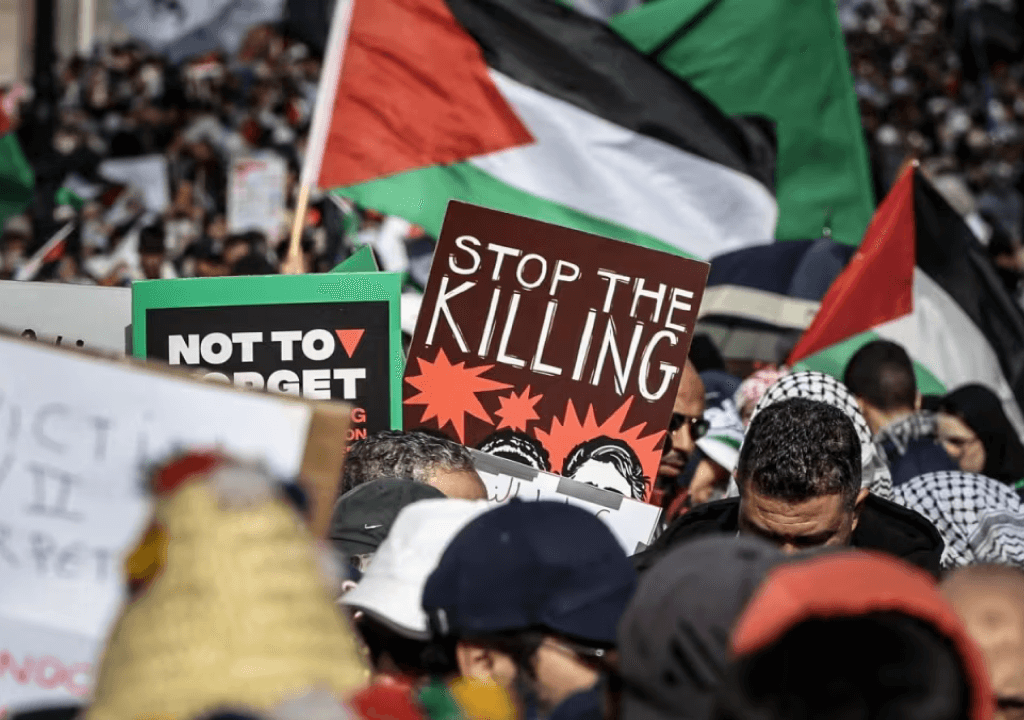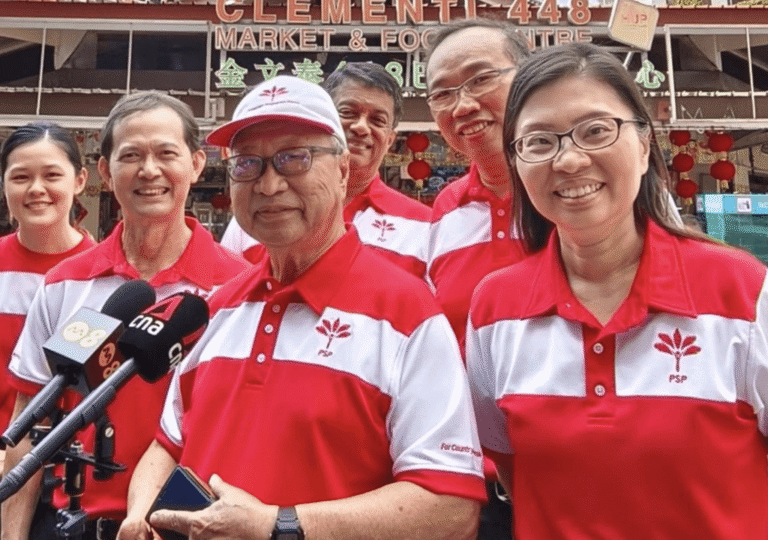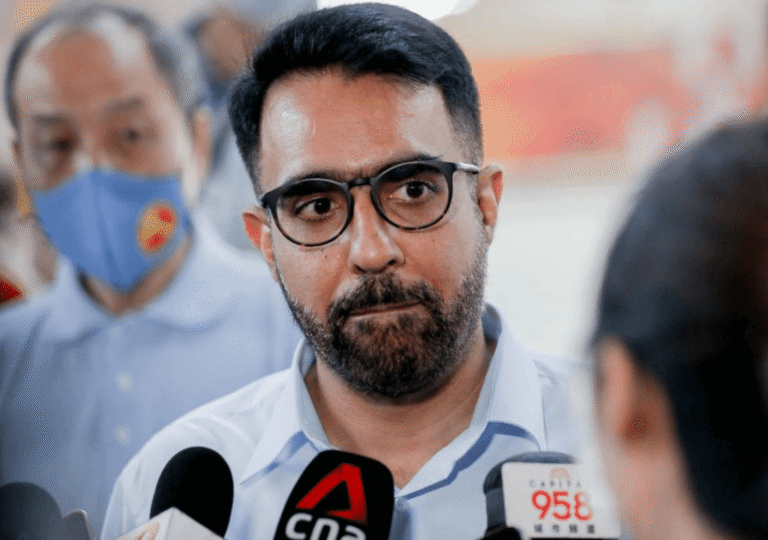As the Israel-Hamas conflict slipped into yet another charged chapter, Singapore retained its measured commitment to a two-state solution, its calls for Palestinian sovereignty growing steadily louder. Yet, despite these increasingly public declarations of support, the city-state continues to withhold formal recognition of Palestine. By contrast, its Muslim-majority neighbors have embraced a more unequivocal stance, championing Palestinian statehood while categorically refusing to recognize Israel. Their position is tethered to the broader contours of the “From the River to the Sea” ideology, a vision that entertains the erasure of the Jewish state altogether.
If not to dismantle Israel, the question might reasonably arise: why not recognize both? Intriguingly, Singapore sets itself apart not just from its regional peers but also from nations that recognize both Israel and Palestine. Instead, it aligns with countries like Japan and South Korea, which extend official recognition solely to Israel. But unlike these countries, who remain muted on the question of Palestine, Singapore strikes a markedly different tone. Through consistent, though noncommittal, expressions of support, it fosters a posture that is at once active and ambiguous—a calculated ambiguity that renders its stance an exercise in balancing rhetoric and restraint.
There were fleeting moments when Singapore seemed poised to join the growing list of nations recognizing Palestine, as Spain and Armenia had done in recent years, spurred by the humanitarian crisis in Gaza. Each time, however, Singapore stepped back. In May, a proposed resolution to recognize Palestine sparked cautious optimism across the Islamic world, which saw the potential shift as a significant gesture from a prominent Asian nation. The optimism, though, proved premature. By July, in a parliamentary address, Minister for Foreign Affairs Vivian Balakrishnan announced that Singapore would recognize Palestine—only for the resolution to be quietly shelved.
Come September, Singapore once again appeared to take a bold step, supporting a United Nations General Assembly resolution demanding that Israel end its unlawful presence in the occupied Palestinian territories within a year. Whispers swirled of Singapore leaning favorably toward Palestine, yet the momentum faltered once more.
Singapore’s delicate balancing act took center stage in a recent podcast episode featuring Prime Minister Lawrence Wong. Reflecting on the Gaza war and its global repercussions, Wong affirmed Singapore’s commitment to collaborating with international partners to help secure a homeland for the Palestinian people while aiding their preparation for eventual statehood. He stressed the necessity of a deliberate and nuanced approach, positioning Singapore as neither beholden to the views of its neighbors nor inclined to alienate the United States. Technical assistance, Wong argued, represents a meaningful and uniquely Singaporean contribution to global affairs—a strategy deeply rooted in the city-state’s diplomatic ethos. Drawing comparisons to Singapore’s well-established support initiatives across Southeast Asia, he suggested that similar efforts could play a critical role in equipping Palestine for the responsibilities of statehood. Over the course of the 46-minute podcast, Wong’s remarks revealed a careful and calibrated strategy—one that seeks to balance principle with pragmatism, charting a course that maintains Singapore’s reputation as a constructive, if cautious, participant in the global dialogue on Palestine.
In the interview organized by Plan B, Prime Minister Wong reiterated Singapore’s steadfast support for a two-state solution, while emphasizing the nation’s recent initiatives to address the humanitarian crisis in Gaza. Since the war erupted in October 2023, Singapore has dispatched five consignments of humanitarian aid to Gaza. Both government-led and citizen-driven contributions have amassed over US$13 million in donations to support relief efforts. Earlier this month, Dr. Maliki Osman, Singapore’s Second Minister for Foreign Affairs, met with Dr. Mohammad Mustafa, the Prime Minister and Foreign Minister of Palestine, during a conference in Cairo. There, Dr. Maliki reaffirmed Singapore’s commitment to assisting Palestine in its capacity-building endeavors. Moreover, Singapore has expanded the number of scholarships offered under its Enhanced Technical Assistance Package for Palestinians, increasing the annual intake from three to ten.
While Singapore’s public stance appears to align with Gaza, its domestic policies exhibit a more restrictive approach, particularly when it comes to managing any form of public protest that could tarnish its image. In October of the previous year, authorities prohibited public events tied to the Gaza conflict, even in the country’s sole designated free speech zone, citing concerns about public safety and security. They also issued a warning against displaying symbols associated with the war. Three women were charged for attempting to organize a group of 70 individuals to deliver pro-Palestinian letters to the president’s office and official residence without a permit. Despite such efforts being stifled, there has been ongoing pressure from Palestinian supporters in the city-state for Singapore to sever its defense ties with Israel and officially recognize Palestinian statehood. This has been accompanied by a surge in public mobilization. A petition demanding the government recognize Palestine as a state has collected over 10,000 signatures since its launch in October.
The Singaporean government’s sympathy for Palestine is evident, yet its actions reveal the deep constraints of what it is willing—or able—to offer. While there is a notable push for practical support, the more contentious issue of formal recognition remains elusive. This tension speaks to the complex diplomatic landscape that Singapore must traverse. The city-state, often characterized as conservative in practice but progressive in appearance, exemplifies this paradox. On closer inspection, it is apparent in nearly every facet of its policies.
With 15 percent of its population Muslim and deep business ties to neighboring Muslim-majority countries, Singapore can no longer ignore the Palestinian cause. However, any move to formally recognize Palestine seems untenable without risking its strategic relationships elsewhere. Chief among these is its long-standing military alliance with Israel, which dates back to Singapore’s split from Malaysia in 1965. At that time, Israel played a key role in helping build Singapore’s military—an offer other regional powers, like India, had refused. Caught in this diplomatic web, the city-state finds itself in a precarious position, unable to fully align with either side without facing significant consequences. Though Singapore will likely delay its recognition of Palestine “Until the Right Time.”







